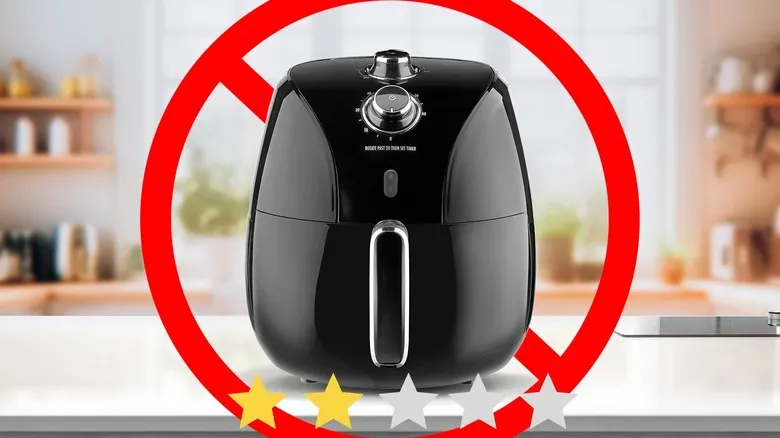1. A recall has been issued
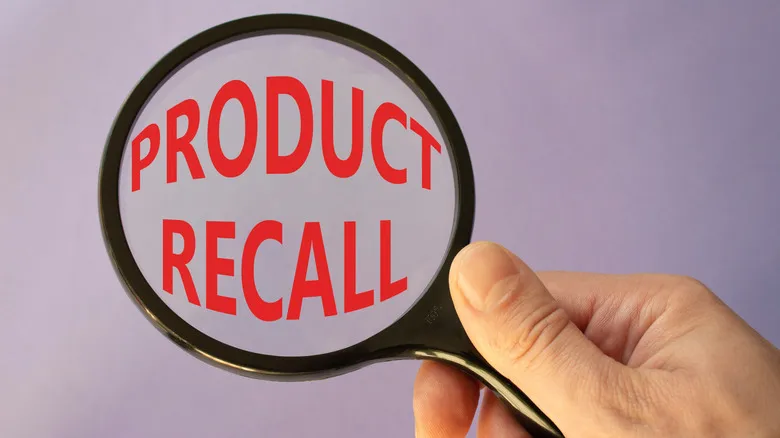
When people hear the term "recalls," they often associate it with major food recalls or car parts that have been taken off the market. However, appliances and electronics are frequently recalled as well, typically due to defects or design flaws that pose safety risks.
Since 2022, more than 3 million air fryers have been recalled, and these aren't just from low-end brands; many reputable companies have had to remove their air fryers from sale. For instance, in October 2022, the Consumer Product Safety Commission (CPSC) recalled Magic Chef Air Fryers because of overheating issues. In February 2023, four models of Cosori air fryers were recalled due to faulty wiring that led to overheating and burns. Later that September, Secura air fryers were recalled for a wiring problem, and just a few months after that, Empower air fryers were pulled from the market due to a frequently breaking internal component. Most recently, in March 2024, Best Buy recalled Insignia air fryers and air fryer ovens for similar overheating concerns.
While recalled air fryers should no longer be available in stores, you might still come across them when shopping secondhand, through resellers, or on less reputable websites. If you're uncertain whether a product has been recalled, visit the CPSC website, where you can find a comprehensive list of recalled items.
2. The reviews seem suspicious

Reading reviews can be an effective way to determine whether a product is worth your investment, but it's not always reliable. Dissatisfied customers tend to leave feedback more frequently than satisfied ones, and some companies may even fabricate positive reviews. For instance, sellers on platforms like Amazon might initially post a product, accumulate favorable reviews, and then replace the item with a lower-quality version, misleading consumers into believing the product has better ratings than it actually does.
Given these questionable practices, it can be challenging to assess a product's quality before making a purchase. If you encounter a significant number of negative reviews, there’s often a valid reason behind them, but be sure to verify that they appear credible and aren’t simply the result of one disgruntled customer or a rival business.
To determine the authenticity of positive reviews, compare feedback across different websites. If you find consistent positive ratings on Target, Amazon, and Best Buy, the product is likely legitimate. Be cautious of generic, formulaic reviews, as these may be generated by bots. Additionally, look for reviews that include photos, as this can help confirm their authenticity and protect you from deceptive practices employed by unscrupulous online sellers.
3. It contains harmful chemicals
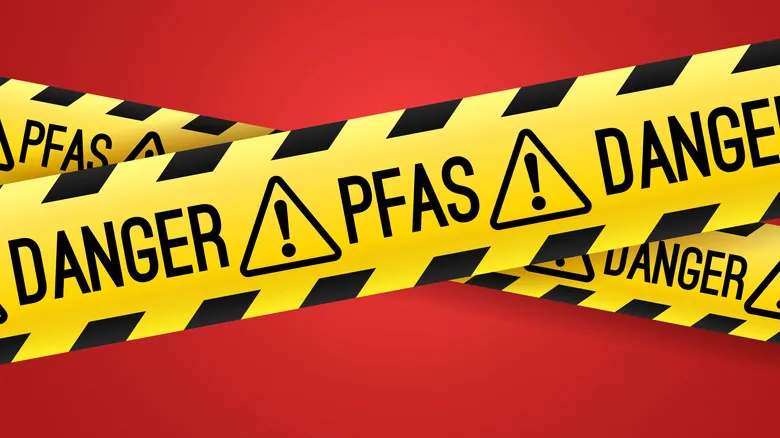
Regrettably, many everyday products are often manufactured with harmful chemicals and substances that can significantly affect our health. For instance, paint and gasoline have historically contained lead, tampons have been found to contain arsenic, and numerous kitchen tools and appliances are made with persistent chemicals. These "forever chemicals," such as per- and polyfluoroalkyl substances (PFAS), do not decompose in the environment or the human body, meaning they essentially persist indefinitely.
PFAS primarily entered the market through nonstick cookware, but they are not the only hazardous substances present in household items. Perfluorooctanoic acid (PFOA) is another persistent chemical used in nonstick coatings. While Bisphenol A (BPA) is not classified as a forever chemical, it can still cause serious health issues and has been utilized in various products.
On a positive note, products sold in the U.S. are prohibited from containing any levels of leachable lead. Furthermore, several states have enacted bans on forever chemicals and BPAs. Consequently, many manufacturers have ceased using these materials in their products and often highlight this on their packaging. However, if you are shopping on platforms like Temu, Mercari, or AliExpress, where items are typically shipped from abroad, there is no assurance that your purchase will be free from lead and forever chemicals.
4. Ventilation is obstructed

When examining the reasons behind most air fryer recalls, overheating is often the primary culprit. This poses significant dangers; for instance, when Insignia air fryers overheated, their handles melted or broke, raising the risk of burns and fires. Similarly, when air fryer ovens experienced overheating, the glass components frequently shattered, creating a risk of cuts, along with the potential for fires and burns.
Overheating can occur due to wiring problems, as seen with the Cosori air fryers, but it can also result from inadequate ventilation. Air fryers achieve their crispy results by circulating hot air around the food, ensuring that every surface is evenly cooked. To facilitate this process, the appliance must be able to intake air and expel hot air; otherwise, it risks overheating. Any obstruction to the air fryer's ventilation can lead to overheating, which may cause injuries or even fires.
Generally, air fryers are designed with ventilation in mind. However, as the recalls indicate, these devices can still overheat. Before purchasing from a reseller or buying second-hand, it's essential to consult the recall list. Additionally, inspect the air fryer to confirm that the vents are unobstructed and positioned to effectively release air. For instance, if the vents are located on the bottom of the unit, proper ventilation may be compromised. Lastly, ensure that your air fryer is placed in an area that allows for sufficient airflow during operation.
5. It doesn't have safety certification
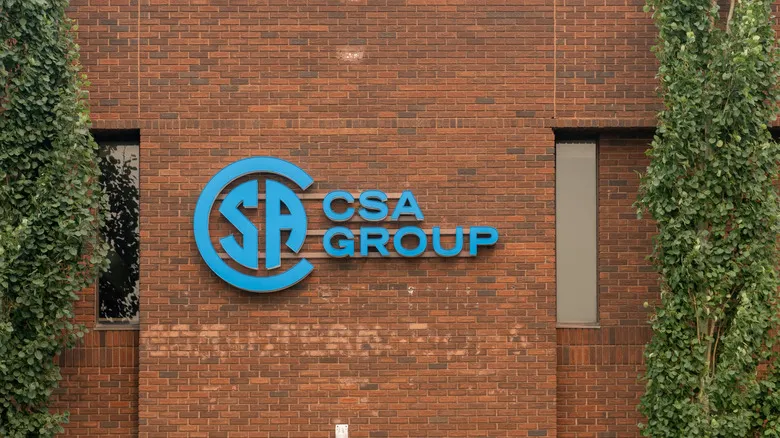
In the United States, electrical devices, including appliances, must be certified by a Nationally Recognized Testing Laboratory (NRTL). These laboratories evaluate whether the product complies with the National Electrical Code (NEC) applicable to that specific type of equipment.
The Occupational Safety and Health Administration (OSHA) is the authority that designates which laboratories can be recognized as NRTLs. There are more than 20 NRTLs operating in the U.S., with some of the most recognized being the CSA Group, Intertek's Electrical Testing Laboratories (ETL), NSF International, and Underwriters Laboratories (UL).
Unfortunately, finding information about NRTL certification can be somewhat challenging, as it is not always displayed on product pages online. If you are shopping in a physical store, you can typically locate the NRTL mark on the packaging, often on the back or bottom. For instance, Intertek's certification symbol features the letters ETL within a circle, accompanied by the word "Intertek" below it. Underwriters Laboratories displays the letters UL in a red circle, with the word "solutions" to the right.
Fortunately, if you are buying a product from a reputable brand at major retail stores in the U.S., it is likely to be certified. Conversely, if you are shopping online from sites that offer products from various international sources, you may need to conduct some research.
6. Cleaning is difficult
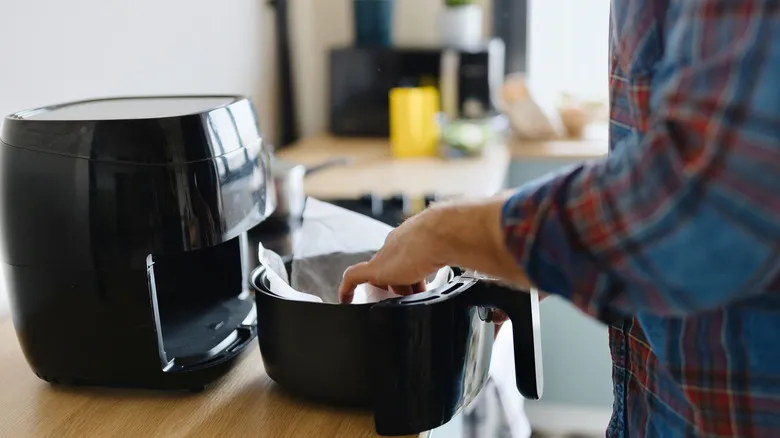
Owning an air fryer comes with the responsibility of keeping it clean. Regular maintenance not only prolongs the life of the appliance but also prevents issues like overheating, smoking, or even fire hazards caused by accumulated food residue and grease. Additionally, maintaining cleanliness is crucial for your health.
Leftover food in your air fryer can harbor bacteria and mold, leading to food poisoning. Another health concern is acrylamide, a potential carcinogen that forms when food is heated above 250°F. Foods high in carbohydrates, such as french fries, tend to produce more acrylamide. While small amounts are generally considered safe, burnt food remnants at the bottom of your air fryer can increase your exposure.
To avoid these risks, it's essential to choose an air fryer that is easy to clean. Ideally, the basket should be removable, and having a removable grease tray is even better. Most product descriptions will indicate whether parts can be detached for cleaning, and reading customer reviews can provide insights into how easy the appliance is to maintain.
7. You've never heard of the brand
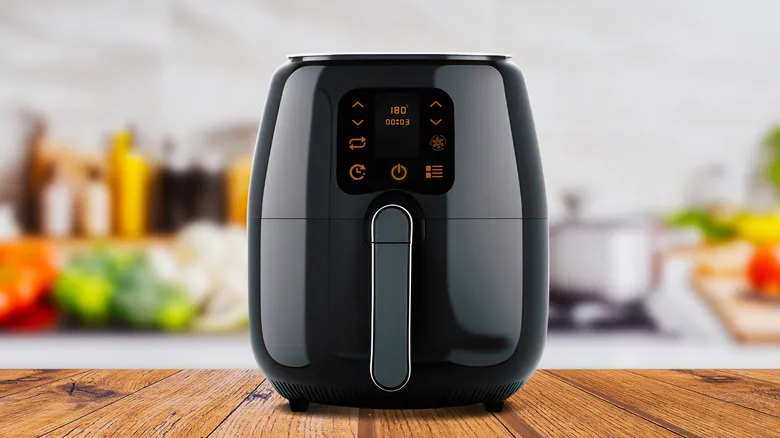
Even if you haven't explored air fryers extensively, you're likely familiar with a few well-known brands, such as Ninja and Cuisinart. When you shop for air fryers, you'll probably encounter familiar names like Black+Decker, Gourmia, and Hamilton Beach. However, if you're browsing on a website that isn't U.S.-based, you may come across brands that aren't available at retailers like Target or Walmart. In such cases, it's important to exercise caution.
While it's not necessary to opt for a name-brand or high-end model, it's advisable to choose a product from a reputable company. Brands found in stores typically offer air fryers that are NRTL-certified, ensuring they comply with safety standards. Moreover, these companies often provide customer service that is more accessible than that of foreign brands.
This doesn't imply that international brands are inherently inferior; it simply means that if you encounter an unfamiliar name that isn't sold in U.S. stores, you should conduct thorough research. Look for product reviews and investigate the safety certifications in that country to determine if the product meets recognized standards.
8. The deal seems too good to be true

If something appears too good to be true, it likely is. This is especially relevant when buying electronics or appliances. While you may occasionally find excellent deals, prices that are drastically reduced should raise a red flag. Generally, shopping at reputable stores like Target or Walmart is safer, as their products are typically NRTL-certified, and these retailers are obligated to remove recalled items from their shelves.
Websites like Temu and AliExpress may offer incredible bargains, but they often come with hidden risks. It's not uncommon to discover hazardous materials, such as lead, in products from these platforms. If you come across an air fryer priced lower than a Costco hot dog, that's a significant warning sign. Always conduct thorough research by checking reviews, product specifications, certifications, and recall lists to ensure the item is safe. The money you save on these sites isn't worth the potential medical expenses from burns or health complications.
The same caution applies when buying second-hand items or from resellers. Look for proof of certification and verify that the product hasn't been recalled. There are many legitimate reasons someone might want to sell an air fryer quickly, but there are also less trustworthy motives. Ensuring that the air fryer you purchase is safe is crucial for protecting you and your family.
Recommended

Make Apple Chips In The Air Fryer For Quicker, Crispier Results
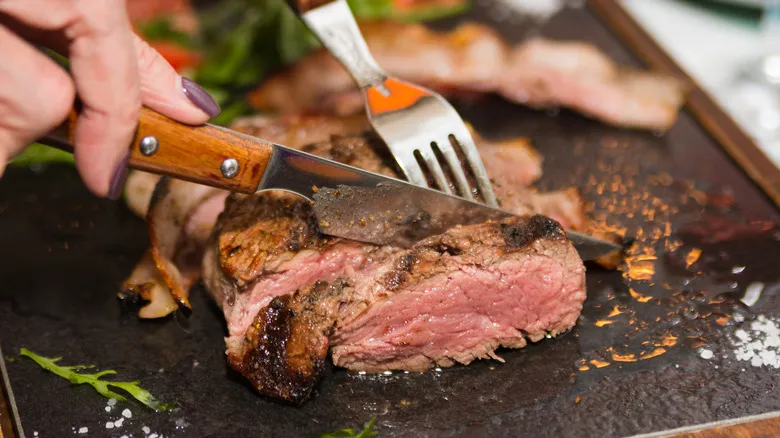
Can You Sharpen Steak Knives?

Gordon Ramsay Constantly Praises One Cookware Brand, And You Should Take Note

Why You Should Cook Tofu In The Air Fryer
Next up

